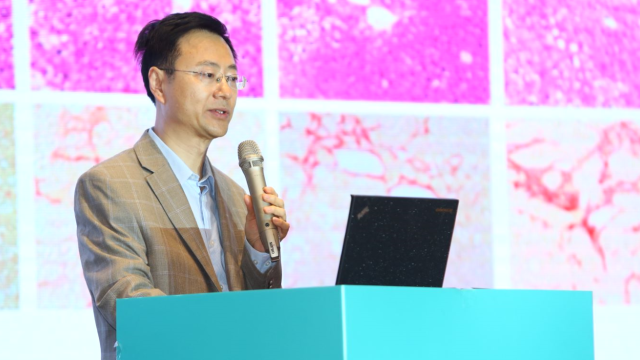Determinants of bacterial biofilm formation at the intestinal mucosal interface and their roles in pathogen exclusion
It is well-established that biofilms are critical for the pathogenesis of many bacterial infections, such as urinary tract infections and dental caries. More recently, biofilms have also been implicated in intestinal diseases such as colorectal cancer and inflammatory bowel disease, where mucosal-associated polymicrobial communities harvested from diseased colon worsens disease in animal models. Despite these studies, the presence of biofilms in the intestinal tract has been controversial. In this talk, I will review current evidence for biofilm formation in intestinal diseases and discuss my current model for investigating determinants of bacterial biofilm formation.
Josephine Ni 时长:19:22


